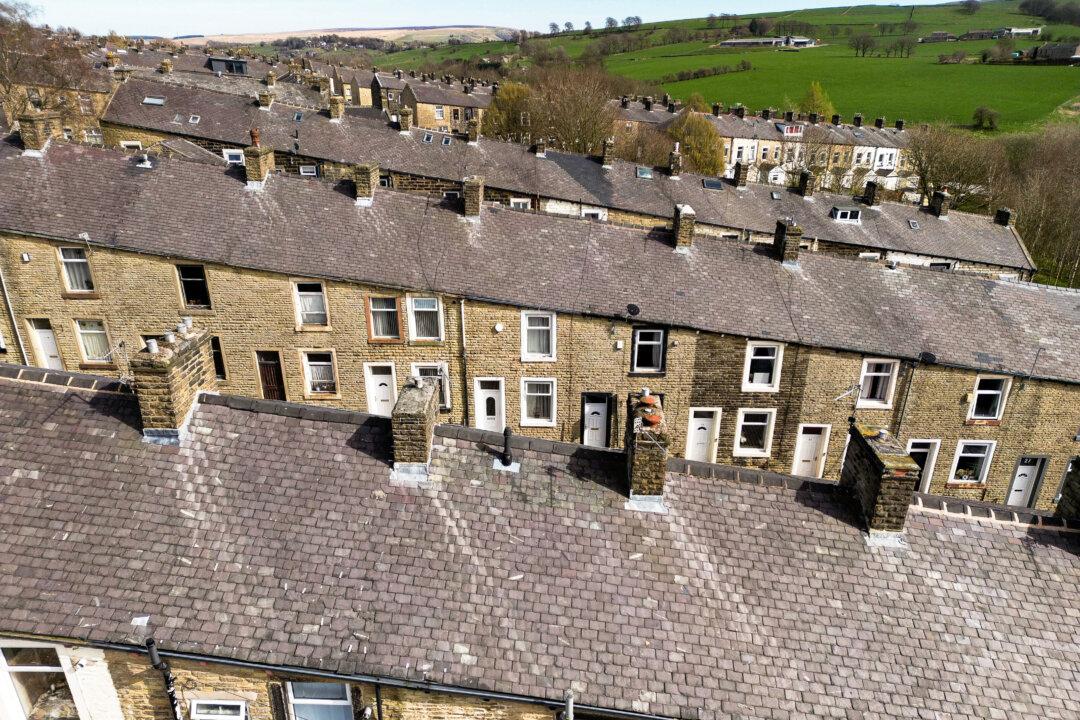The government has spent nearly £800 million on grants for refitting homes with insulation measures aimed at achieving net zero emissions.
In a written question on Tuesday, the government revealed that it has spent £787 million since 2020 on a net zero insulation installation program called the Local Authority Delivery Scheme (LAD).
It had spent this entire sum on 58,892 homes. But critics said that fully retrofitting every domestic building stock in the UK could cost trillions.
‘Build Back Greener’
The UK has signed into law a policy to achieve net zero by 2050, with the Conservative government setting out a strategy called “Build Back Greener” to decarbonise all sectors of the UK economy.Michael Kelly is the former chief scientific adviser to the Department for Communities and Local Government and the Global Warming Policy Foundation think tank resident expert on energy efficiency upgrades and housing decarbonisation.
He told The Epoch Times that he wanted to know the measurements detailing the extent to which carbon dioxide emissions have been reduced by the LAD Scheme.
He noted that there are 28 million homes in the UK and that it would take over 1,000 years to convert all of them at that pace.
The Climate Change Committee is an independent non-departmental public body that advises the UK and devolved governments on emissions targets.
Mr. Kelly said that his best estimate is that it will cost about £75,000 per house to retrofit everything to a high standard.
“My estimate is between three and four trillion, just for us for improving buildings and expanding the electricity grid. But nothing like paying for the new infrastructure for electric cars, for example. All of that’s on top of that,” said Mr. Kelly.
“If we suddenly had a magic tree tomorrow, and we managed to have, say, a glut of nuclear energy, which was cheapened and didn’t have any CO2, then we wouldn’t need to do any of this retrofitting at all because we just use non-carbon energy,” he said.
However, he said that the safety standards for nuclear are “ridiculously high.”
Heat Pumps
On Monday, the government said that it has spent nearly £140 million on grants designed to cover half of the cost of heat pumps, some of which are £13,500 to buy and install.But an expert criticised the scheme as it rewards those people who already have the means to buy them with taxpayers’ cash.
Heat pumps are part of the government’s strategy to reach net zero carbon emissions by 2050, with a target of 600,000 heat pumps installations by 2028.
Reacting to the numbers, Mike Foster, CEO of the industry body representing gas heating specialists the Energy and Utilities Alliance, told The Epoch Times that the problem with the scheme is that it does not cover the full cost of installing a pump.
“My challenge to the scheme is that it’s rewarding those people who’ve already got substantial cash deposits at their disposal. And it’s paid for by and out of general taxation,” he said.
“So we are all paying for those who are well off to effectively make lifestyle choices and at a time when people are struggling to pay their bills,” he said.
The Epoch Times contacted contacted the Department for Energy Security and Net Zero for comment.






